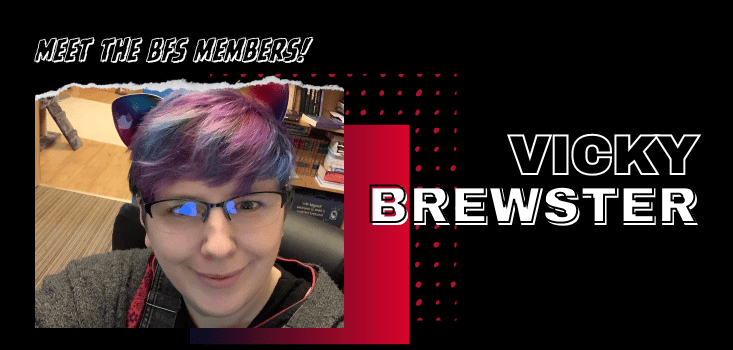Every Friday, we meet a member of the BFS and peer deep into their soul (or, at least, a form they filled out). Want to be featured? Email us: online@britishfantasysociety.org
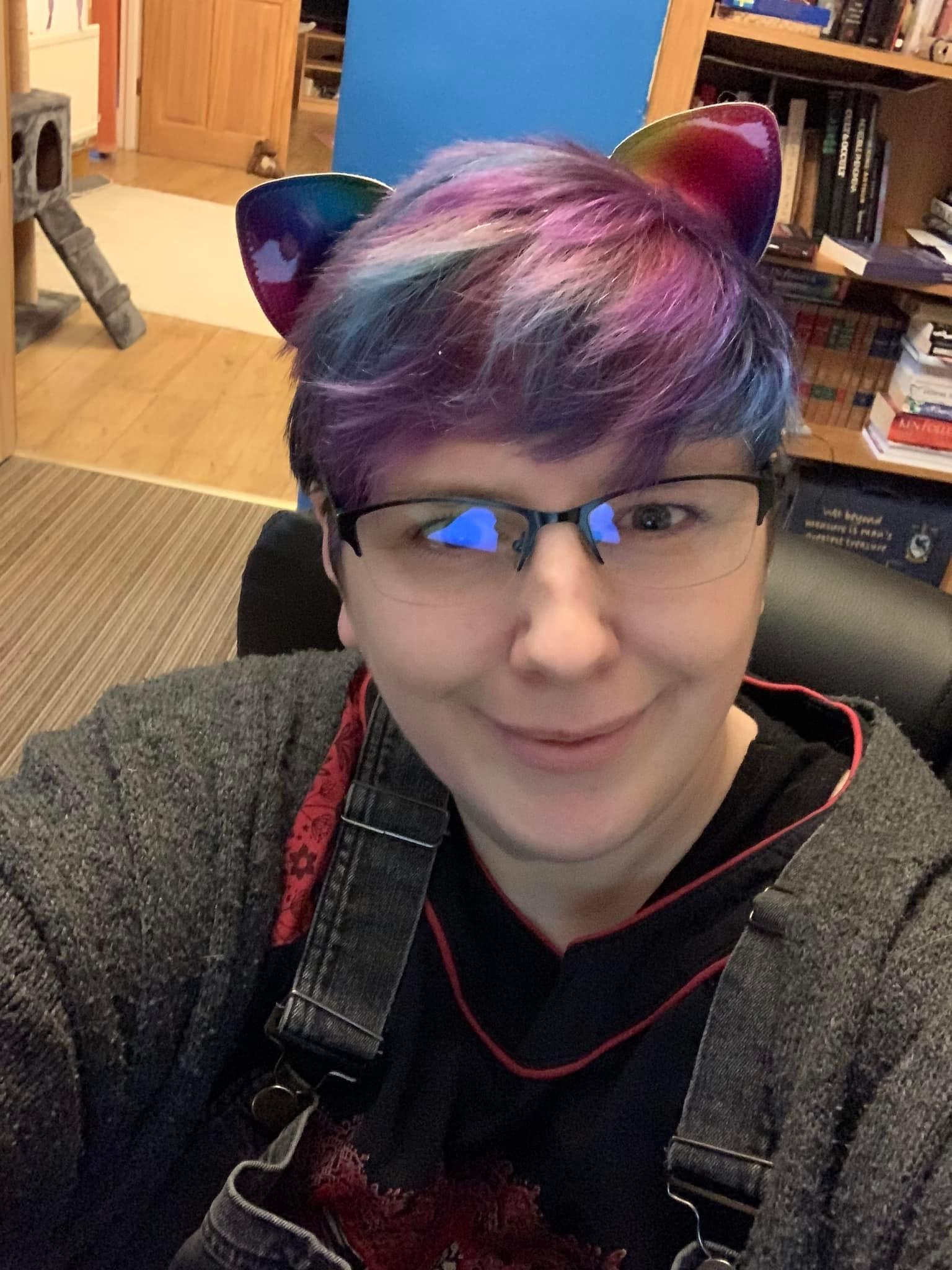
Name:Â
Vicky Brewster (they/them)
Which region are you based in?Â
South Wales, UK
If you write, which genre:Â
Sci-fi and Horror (scholarship)
Are you drawn to any specific SFFH sub-genres?Â
I love horror and the crossover between horror and science fiction. My Ph.D. thesis was on hauntings in contemporary fiction, so ghost stories are a passion, and particularly haunted machinery or simulations.
If you don’t write, what do you do?
As well as writing for an academic audience, I am a developmental and copy editor working mostly in speculative fiction. I give lectures and workshops on writing, editing, and my research. I host and produce the Words Have Power podcast, which aims to introduce elements of literary theory to non-academic readers. I’m also training to be an accredited indexer. I also run live-action roleplay events with Blanco’s Games, with our next event, The Farmer Wants a Wife (A Poirot LARP) running in late January 2025.
Your influences
Tell us about the book/film/thing that got you into SFFH: What was it? How old were you? What impact did it have on you?
When I was six years old, I was obsessed with Beetlejuice. Like, demand to watch it three times a day obsessed. Similar obsessions with Labyrinth and Buffy the Vampire Slayer. I’ve always been very into speculative fiction, and found in those genres imaginary worlds where I can really lose myself. I was very active in the Harry Potter fandom as a teenager, and I guess that’s where I started to see writing as something I could do to make the world (or someone else’s world, in that case) the way I wanted it to be. The book that really first inspired my thesis topic was Rawblood by Catriona Ward. It did things that I had never seen in a ghost story before, and the more it lodged in my head, the more I started to see patterns with other books I was reading at the time.
How does that early influence show up in your work now?
I really love work that takes old tropes that we should all be bored of by now, and manages to put a completely fresh spin on them. I think what I loved about fandom was the queering of worlds that, on the page, were very heteronormative, and we’re seeing that increasingly in general fiction releases, which is so awesome. I always push my clients to think about alternative points of view, which I think again comes from loving minor characters in larger works. So many stories can be improved by thinking about what they might be like if the villain, or that apparently throw-away character, was the lead, and how they interpret the story. I think fandom also encourage collaborative working, which is how I see the role of an editor in the early development of a manuscript, as well as scholarship where a number of theorists are part of the conversation, and of course writing interactive stories for LARP.
(Pictured: Vicky playing Poirot at one of their LARP events)

Where do you draw your creative inspiration from?
From two places: spotting patterns, and talking out what-ifs. For academic writing, spotting patterns is really important. I work almost entirely on books being published now and over the last ten years, and I get a kind of tingle in my brain when I know I’ve read a book I want to research further. I’ll start seeing lie a spiderweb of connections with other texts or theories that have interested me, and then when I see the right call for papers, the idea synthesis further. For creative writing – especially designing and writing LARP events – the origin is usually a long car journey with my husband or friends, where we pose a what-if question: what if you had to run a weekend-long escape room? What if you player party were all murder suspects? What if the game wasn’t in an enclosed location, but rambled over a city? We talk out the ideas and bounce off each other. Creating collaboratively is such a fulfilling way to work, and it helps so much with stuff like writer’s block or writing fatigue, because you have back-up.
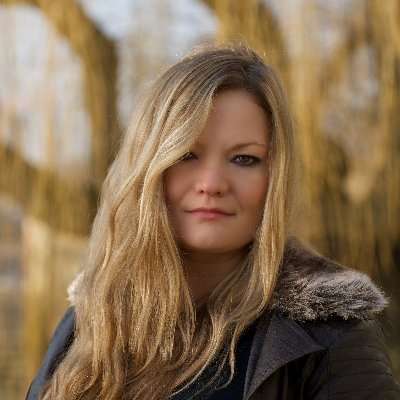
Who do you look to as a genre hero? Why?
Catriona Ward (pictured) is just a rock star of contemporary Gothic and horror. I was fortunate enough to have her run a writing workshop and give a Q&A at a writing retreat I ran, and I know she was so inspirational to everyone who was there. There are a lot of women and non-binaries doing amazing fresh things in horror like Caitlyn Starling (who has yet to write a book I don’t like), Gemma Amor, and Sarah Gailey.Â
Your work
You’re stuck in an elevator for 60 seconds with that hero, and they want you to describe your work. Give us the pitch.
Oh gosh – which kind of work? I guess I work collaboratively with others on various speculative projects, helping to construct good stories, create memorable experiences, and make meaningful connections between fiction and the world we live in. That’s very high level, but I think it includes everything!
(Pictured: some of the academic collections in which you’ll find Vicky’s words.)
What are you working on right now?
Right now, between editing and indexing various projects for other people, I’m writing a chapter for a collection on science fiction and motherhood. My chapter is about how cloning in science fiction enables women to raise not just children, but a child version of themselves, away from patriarchal influence, using The Echo Wife by Sarah Gailey as my case study. I’m also working on the book proposal for my first monograph: Haunted Fiction in Britain’s Age of Austerity. And like I said, I have a LARP event to run in late January.
Thinking about all the stories/work you’ve done, what sticks out most in your mind? Why?
I guess just the variety of my experiences when it comes to writing, and how hard it can be to judge your own work. The peer review system in academia can be pretty harsh, and every time I submit I’m nervous as anything because sometimes I feel like I can’t tell when I’ve written a banger, and when something needs more work or a different angle! My first peer-reviewed article, I had one reviewer say “publish this immediately, only minor amendments†and another reviwer say, “this reads like it’s written by an undergraduate student†– for the same piece of work! I always try to bring this sensibility to my editing and when I’m working with others. And the knowledge that in creative industries, even in scholarship, there’s a lot of subjectivity. As writers, we obviously feel very close to and protective of our work, but if it’s going to go out in the world, there are going to be a variety of opinions about it that you can’t control.
(Pictured: Dr Vicky at their recent graduation)

Where and when do you create/are you at your most creative?
I have bipolar, so this partly depends on my mood. I tend to be a binge writer – meaning I will write in spurts, producing 5,000 a day for a few days, then nothing for weeks. I’m not particularly precious about how or where I write, although if I had to pick a perfect environment, it would probably be alone in my garage with the doors open and the rain falling, and a cat sitting on my notes. I’m also a pantser, so I tend to feel most creative on a first draft. I hate going back over my own work, for a variety of reasons (maybe odd for an editor, but my writing and other people’s writing are always very different kinds of beast in my head), so if I could just write first drafts forever, that would be amazing!
What’s the best advice you’ve received about creativity?
I really love Stuart Turton’s attitude of you just have to sit and write, and what you write might be shite, but it’s on the page. He has a very structured way of thinking about writing that comes from having worked as a journalist before being a novelist, and he has a word count goal for each day, and when he doesn’t reach it, the deficit goes on the next day. As an ex-accountant, and someone who thinks about writing/editing as a job rather than a creative pursuit, this really speaks to me, and again helps with that distancing.
What’s your writing soundtrack?
There are some nice dark academia playlists on Spotify I sometimes put on, but I prefer just rain. If I’m editing, I usually put some streamers on YouTube playing a game I’m already familiar with. It makes me feel like I have friend chatter around me without getting distracted.
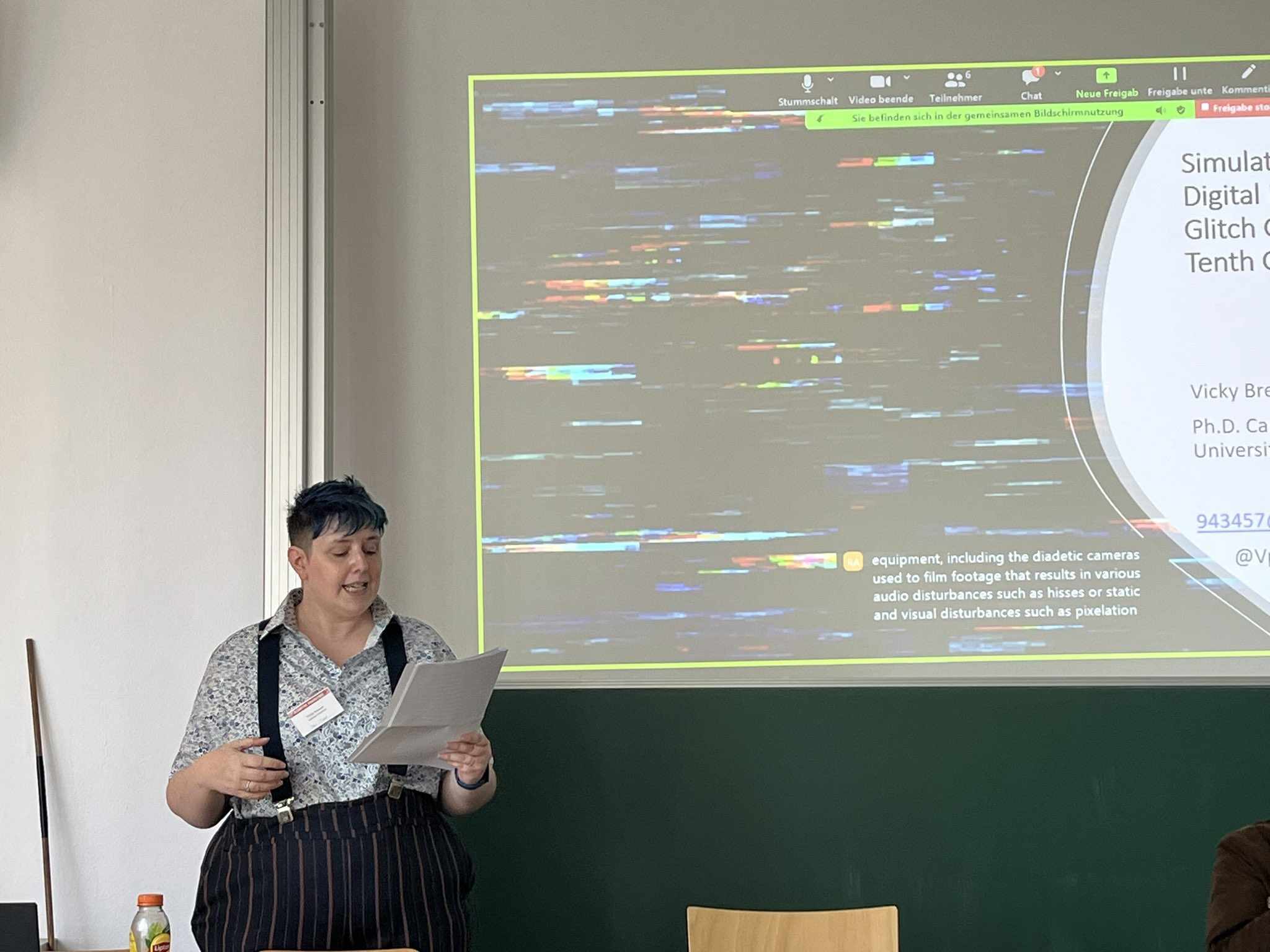
The quickfire round
Sci-fi, fantasy or horror?
Horror
Quiet or loud?
Quiet (medium?)
Dark or light?
Light
Strict lines or genre blend?
Genre blend
Awards or bestseller?
I guess bestseller? I don’t really care about either if the blurb sounds good
Fiction or non-fiction?
Fiction for reading, non-fiction for writing
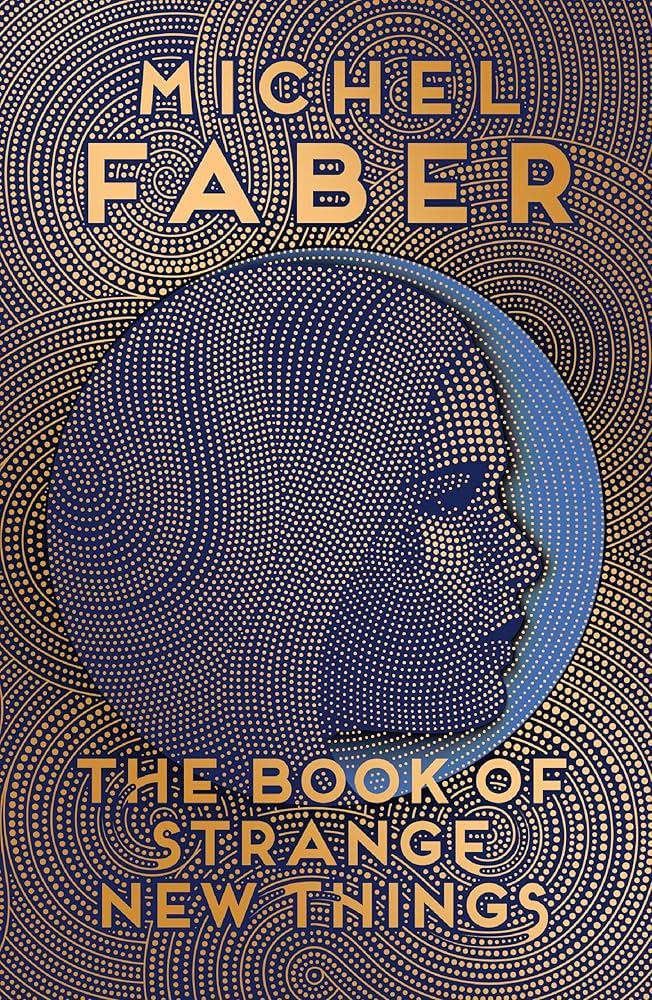
Poetry or prose?
Prose
Plotter or pantser?
PANTSER
Reading or listening?
Reading (listening makes me sleepy!)
Notebook or computer?
Computer
Favourite SFFH book of all time?
The Book of Strange New Things by Michel Faber
Last book you read?
Anna O by Blake Matthew
Any SFFH author on auto-buy?
Caitlyn Starling, Catriona Ward, Sarah Gailey, Matt Wesolowski, Stuart Turton, Michel Faber, T. Kingfisher, Joe Hill
Favourite podcast?
Most listened to is No Such Thing As a Fish (I listen to it every night before bed). I rarely miss an episode of Books in the Freezer.
The home stretch
What’s the best thing about being part of the SFFH community?
The support. I’ve made so many amazing connections, and even someone who you only met once at a con five years ago might still suddenly appear in your inbox like, “Hi, I remember you saying you did this, would you come talk about it to my writing group?†Even authors who are getting really big and ‘breaking through’ the genre wall are often so generous with their time and attention.
Time to plug your stuff! Where can we find you and your work? What have you got coming up? Consider this your advertising space.
Well, I’m doing a bunch of panels at Fantasycon, and I’ll be presenting at the Reproduction and Speculative Cultures conference in October! I’ve recently opened up to clients again after a hiatus to finish my Ph.D., so you can find out all about my various editing and indexing services at vickybrewstereditor.com. You can also contact me there about speaking engagements, workshops, research presentations, and all of that kind of thing. I’m very active on Twitter/X @VProofreader, and I’m trying to get better at Instagram @vickybrewstereditor. I’m also going to be presenting some of my research at the UK Ghost Story Festival and for Romancing the Gothic in 2025. And you can find my podcast, Words Have Power, wherever you enjoy your podcasts!
Vicky will also be part of our deep-dive editing panel happening on Wednesday, 18 September. It’s free for members, or just £5 for non-members; get the details here.



